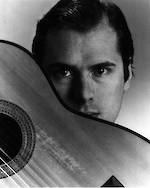Connecting a few dots about myself.
All to be fleshed out a bit in the fullness of time that I might not live to see, I'll try first a series of quotes.
Albert Salomon--
[Barker] Fairley explicitly states that Goethe has significant, immediate bearing on the problems of an age of destructive introspectiveness. "The special appeal in our time of abnormally introverted figures like Rilke, Hölderlin, Kierkegaard, Kafka and others reminds us how near we still are to Werther and Tasso. To this extent, Goethe's problem is...part of our probem. We cannot affect to ignore it." Professor Fairley clearly discerns the relevance of Goethe, as thinker and a model of *Bildung* to our age..
Elias Canetti shares Kafka's interpretation of Felice's dream. Felice and Kafka are in a doomed engagement--
Kafka:
Had you note been lying on the ground among the animals, you would have been unable to see the sky and the stars and wouldn't have been set free. Perhaps you wouldn't have survived the terror of standing upright. I feel much the same; it is a mutual dream that you ahve dreamed for us both.
Canetti explains:
One must lie down with the beasts in order to be set free, or redeemed (*erlöst*). Standing upright signifies the power of man over beast; but precisely in this most obvious attitude man is exposed, visible, vulnerable. For this power is also guilt, and only on the ground, lying among the animals, can one see the stars, which free one from this terrfying power of man.
Canetti--
Confronted as he (Kafka) was with power on all sides, his obduracy sometimes offered him a reprieve. But if it was insufficient, or if it failed him, he trained himself to disappear; here the helpful aspect of this physical thinness is revealed, though often, as we know, he despised it. By means of physical diminutions, he wighdrew power *from himself*, and thus had less part in it; this asceticism, too, was directed against power.
Next, Walter Benjamin's discussion of Kafka and Robert Walser. Here, I will paraphrase. Benjamin mentions Kafka saying, "there is hope, but not for us". And Benjamin then brings our attention to the happy assistants in Kafka's stories. And he reminds us of Robert Walser's novel *Der Guhülfe*, wherein an inventor is doomed to failure, but his assistant enjoys a sunset, enjoys a glass of wine.
******************************
These points reveal something about myself that I had not quite understood. Like Dina Koston, Jacques Monod's New York Guild, Robert Pollock's /Ebb & Flow Arts, David Starobin (Bridge Records) and others, I am vertically integrated. This vertical integration reaches down and back to the primal scene, the brain/heart issue or, if you don't mind, to original sin. This is what Kafka is getting at with his interpretation of Felice's dream about lying with the animals. The power struggle cannot be cut off at the neck or the knees.
I am vertically integrated, but more than some of those like-minded doers, I actively and not entirely unconsciusly avoid situations where my success could be defined by anyone. So I did not seek certain validations that others seek.
I now get this as something akin to Kafka's approach to subverting power structures.
Next, there is a mystery that I'm trying to solve. Austo-Hungary was a totalitarian police state and one is now threatening to emerge here in the US. Goethe's pathology was that of Werther, but I do not see Kafka as a Werther type, and I do not agree with Barker Fairley's verdict that introversion is destructive. I see introversion as an honest response to pathological hunger games extroversion. I see the polarization increasing at moments when zeros creep into denominators -- during authoritarian regimes in which gaslighting is the norm.
Harmann Broch is all over this in his novels, especially *Sleepwalkers*. He talks about infinities (zeros in denominators). He talks about the spectacle, the hunger games -- in Sleepwalkers the symptom is women's mud wrestling.
And in Hermann Broch's essay "Hugo von Hoffmannsthal and His Time" Broch gets into kitsch and other empty values.
Finally, I like what Vonnegut said in that graduation speech that goes around -- do an art. I am not content to industrialize what I do because that sets up expectations that I feel are ultimately needless. I'm like Wallace Stephens and Charles Ives and Dina Koston in this respect.
Vonneget did create a business model and won for himself a publisher, but it was being in something like the Wallace Stevens mode that sustained him through his long fight.


